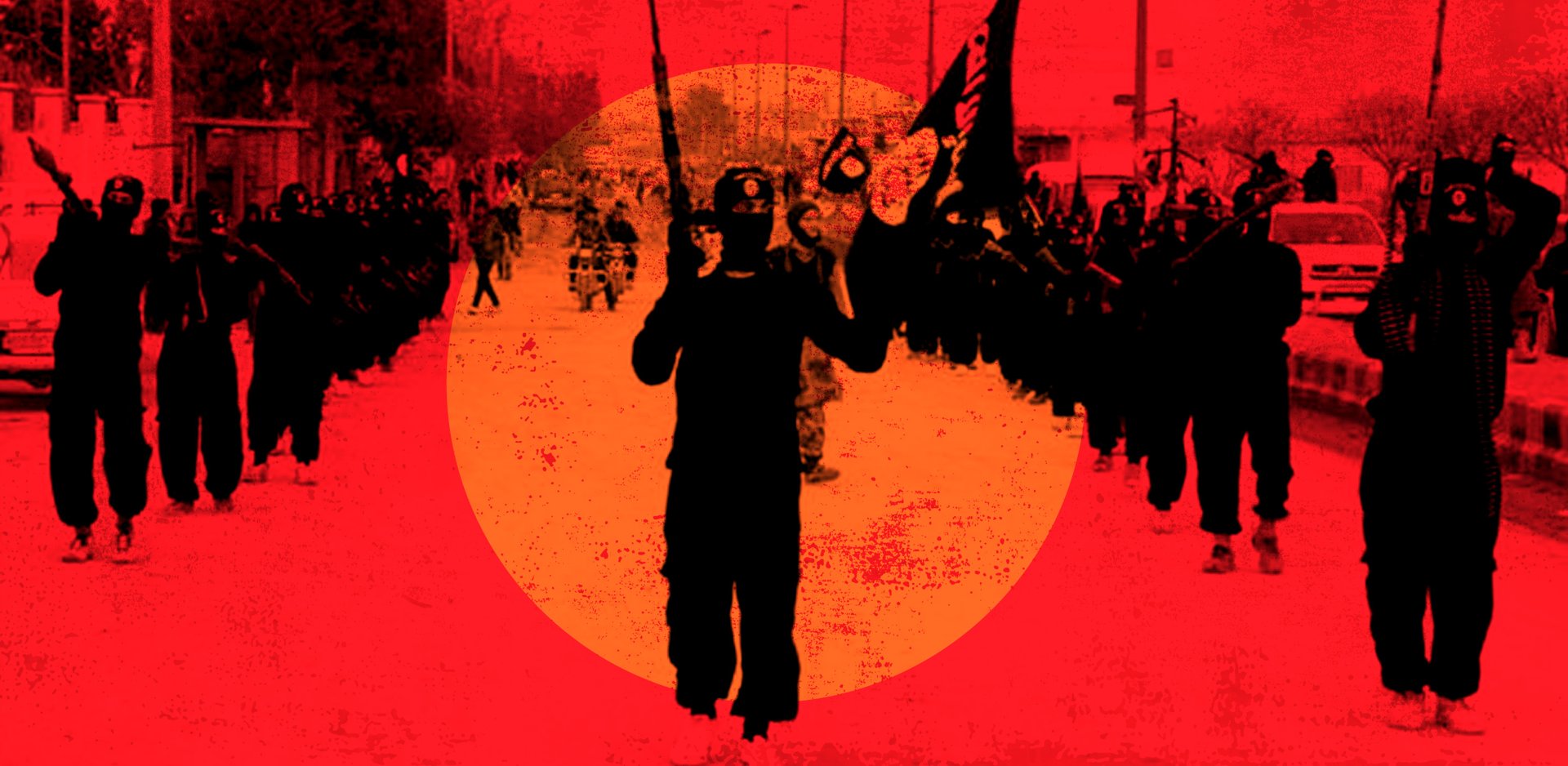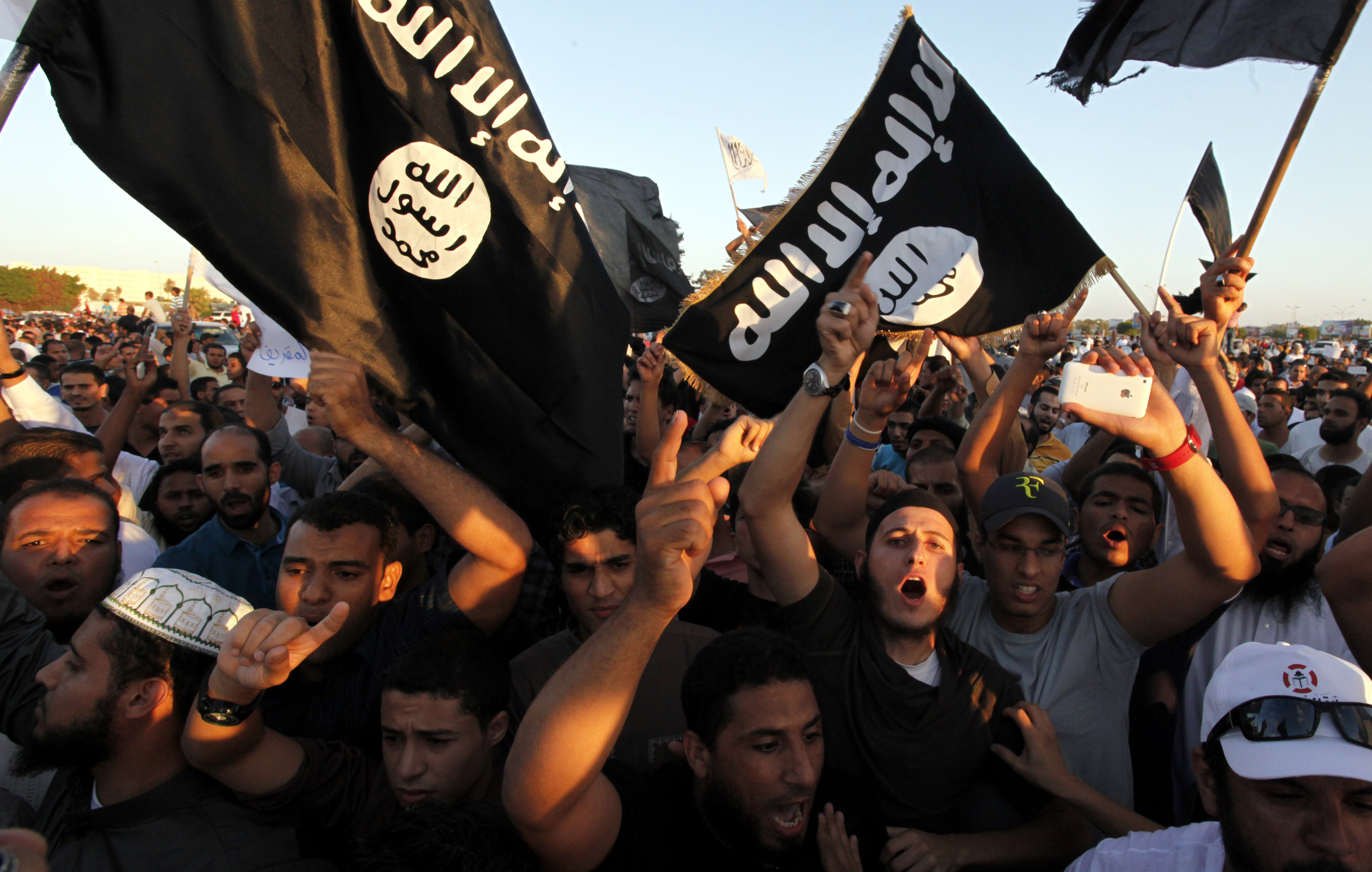| Online: | |
| Visits: | |
| Stories: |
None of the Democrats Has a Strategy for the Islamic State ISIS

Bernie Sanders was a sixties revolutionary who implemented for conscientious-objector position during the Vietnam War, because he was, based on a statement from his campaign spokesman earlier this year, “a pacifist.”
Consequently on Saturday night, at the Democratic debate, in Des Moines, Iowa, it was jarring to hear Sanders, the first Presidential candidate to talk before a national crowd in the aftermath of the Paris attacks, state forthrightly, “Together, leading the world, this country will rid our planet of this barbarous organization called ISIS.”
If you had been paying attention to the event still dumbstruck by the events in France but expecting the debate would provide some understanding about how the United States should interact, Sanders’s unambiguous call for a military wipe out of ISIS was encouraging. Evidently he had thought about this vexing challenge and came to the Iowa debate ready to explain his strategy.
However in the next breath, he disclosed he in fact had no plan. “I’m running for President, because as I go around this nation, I talk to a lot of people,” he stated, in a puzzling and strange non sequitur. “And what I hear is people’s concern that the economy we have is a rigged economy. People are working longer hours for lower wages, and almost all of the new income and wealth goes to the top one per cent.”
Now was Hillary Clinton, and she, as well, promised to clarify how she would bargain with ISIS. “I will be laying out, in detail, what I think we need to do with our friends and allies in Europe and elsewhere to do a better job of coördinating efforts against the scourge of terrorism,” she stated. “Our country deserves no less, because all of the other issues we want to deal with depend upon us being secure and strong.”
You can not get any more one on one than that: she would be “laying out in detail” the whole strategy. Shortly after, she included a Sanderseque promise that ISIS “cannot be contained, it must be defeated,” which would be a noteworthy shift from merely stopping ISIS’s growth to eliminating it. But after two hours of debate, the Clinton strategy never came.
In comes Martin O’Malley. He contended that ISIS symbolized “the new sort of challenge, the new sort of threat that does, in fact, require new thinking, fresh approaches and new leadership,” and yet he never explained to us specifically what that new thinking and those fresh approaches would be.
That’s not to imply that there was not some debate about the problem. But even those moments that appeared to highlight a difference of opinion fizzled into agreement about évidence. At one point Clinton contended “this cannot be an American fight,” and O’Malley retorted, “This actually is America’s fight,” though he swiftly included that “it cannot solely be America’s fight.” Got that?
There was a fantastic option of time spent on what brought about ISIS’s rise. Sanders pointed to the consequences of climate change. O’Malley and Sanders both pointed to Clinton’s vote in favor of the war in Iraq, which produced the vacuum that ISIS has filled. John Dickerson, the moderator, questioned whether Clinton’s support for deposing Muammar Qaddafi in Libya also led to the massive instability in the region. Clinton herself, in a resourceful stroke of deflection of responsibility for her part in the events of the last twelve years, contended that terrorism is simply a long-running problem in that part of the world.
“I think it’s important we put this in historic context,” Clinton stated, before taking viewers back through the history of terrorist attacks against Americans, which includes the 1983 bombing of a Marine barracks in Beirut, the 1998 embassy attacks in Tanzania and Kenya, and 9/11. She was possibly attempting to show off her knowledge of the region and its history, but it appeared more like she was attempting to steer clear of criticism that the invasion of Iraq and intervention in Libya helped fuel ISIS’s rise.
Some of the justification for the lack of detail from Sanders, Clinton, and O’Malley has to do with the state of the Democratic primary race at this time. As intense underdogs, Sanders and O’Malley had benefits to attack Clinton’s record on Iraq and Libya, but they have very little motive to lay out a comprehensive strategy, particularly when appealing to a Democratic electorate that is skeptical of any military intervention that could generate high casualties for Americans. (There is no significant opposition to Obama’s counterterrorism drone war or his air strikes against ISIS in Syria and Iraq.)
Clinton was probably even more restricted in her responses. Sitting on an tremendous lead, she was loath to express anything that might trigger a reaction from the anti-war Democratic base that Obama tapped in 2008 to beat her. But besides from the noticeable politics, she may have thought her caution was the more responsible path. She might not want to box in Obama, who has yet to settle on a new path against ISIS, by laying out her own more focused and comprehensive strategy. And given her dominance in the race so far, she may not have needed to box in the next President, either.



Source: http://fusionlacedillusions.com/2015/11/16/none-of-the-democrats-has-a-strategy-for-the-islamic-state-isis/




